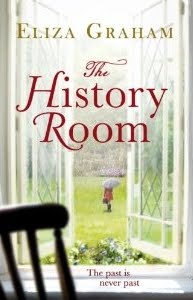It’s odd to think that in a vocation that’s clearly anti-social (are there many professions where you spend most of your career locked away from the rest of humanity?), solidarity for writers is an important thing, which is kind of apt in a week where the likes of Philip Pullman and Anthony Horowitz have been haranguing the Home Office for the quite ludicrous (and callously opportunistic) £64 levy for an increased CRB check for writers visiting schools (something that has pretty much kyboshed any future appearances by me at schools in the near future – though a CRB check is a good thing, I don’t agree with the fee either).
But it’s not just politics that brings a little love. It’s empathy.
This lunch time I made a fleeting visit to the local Waterstones in Sheffield to meet John Connolly, a lovely guy who will give you all the time in the world if you have it (Brian can confirm this!). Armed with a few books, with Sarah and Baby Daniel in tow, the visit turned into a bit of a whirlwind which meant bombarding John with questions (sorry, John, if you’re reading this!) about the writing, and the experience of writing with everyday pressures of family and social life (something I’m experiencing to the nth degree lately).
But what I got out of the all too short meeting was more a feeling of solidarity, exemplified by John buying a copy of my book and asking me to sign it for him. “Writers should support each other,” he said to me with a broad smile.
And he’s so right. They should.
And I reckon they do. Especially with Macmillan New Writing. I’ve never met such a disparate collection of authors before, writers who are not bound by genre, but by experience. By empathy. It’s a fraternity, a group of wide-eyed and eager writers stepping onto the page for the first time. Like John did today, we buy each other’s books, pimping them to everyone we know (I’ve lost count of the copies of MNW books I’ve bought for people for Christmas and Birthdays) or the times I’ve asked for hardbacks of MNW titles to be ordered in the local bookshops; and when we can, we attend book launches or book signings. And we support each other on the MNW blog, picking each other up when things don’t go right, or congratulating each other when they do.
Although this blog entry is sounding a bit like a love in, I don’t think there’s anything wrong in that. John has shown that you’re never too big, or too successful for solidarity. True, I can think of a few writers who don’t think that way, but with the market-place and writing conditions getting more and more competitive and restrictive (there seems to be mid-list cull at the moment that’s a little scary), it’s good to know there are writers out there who will go that extra mile to help other writers out.
So who’s up for a big group hug?

